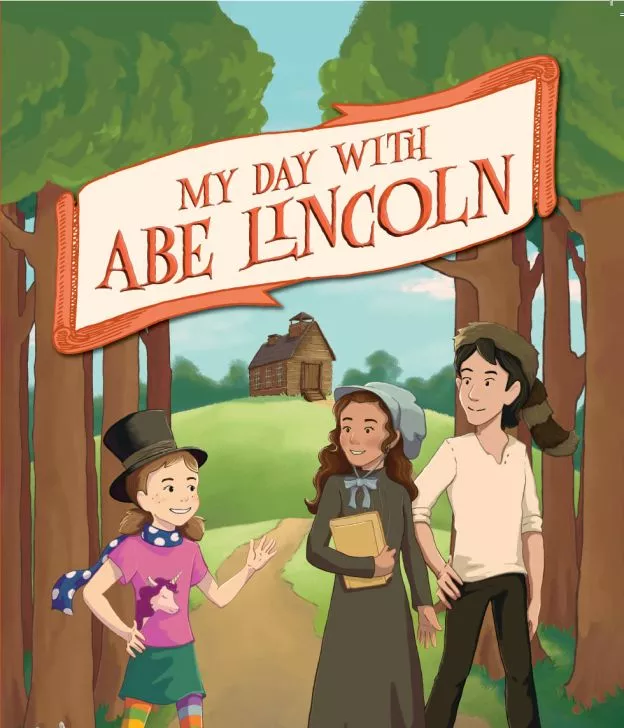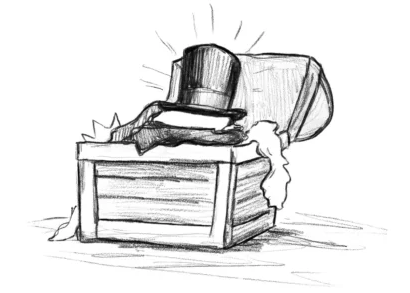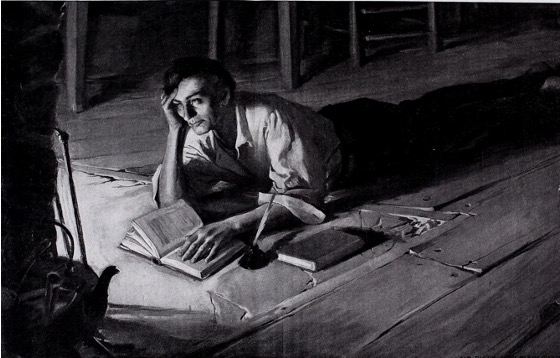
My Day with Abe Lincoln: an interview with Professor Jonathan White
JMC Resident Historian Elliott Drago sat down with JMC Miller Fellow Jonathan White to discuss his newest book, My Day with Abe Lincoln. Dr. White is professor of American Studies at Christopher Newport University
ED: What inspired you to write a children’s book, and why did you write one about Abraham Lincoln?
JW: I’ve been writing adult nonfiction books about Lincoln and the Civil War for more than a decade. In the last ten years I also had two daughters, and in the evenings I often find myself either reading them bedtime stories or making up stories about animals who have all sorts of crazy antics. About three years ago, I decided to bring these two aspects of my life together by working with my girls to write a story about Abraham Lincoln that would be fun and exciting for kids to read, or for parents to read to their children.

ED: Tell us a little about your book, My Day with Abe Lincoln.
JW: My Day with Abe Lincoln tells the story of a little girl named Lucy who tantrums on a Monday morning because she doesn’t want to go to school.
She rebels by dressing in a crazy outfit, and when she puts on her brother’s magic top hat she travels back in time to Indiana in the 1820s.
On a dirt path she meets Abe and his sister Sarah Lincoln. She goes to school with them and then back to their cabin in the woods at the end of the day. Along the way, Lucy learns a lot about Lincoln’s life. I spent years researching the book, and much of the language used is drawn directly from the historical record. I like to tell people that the book is completely historically accurate, except for the time travel!
ED: How is writing a children’s book different from writing a scholarly book?
JW: Writing this book enabled me to use creativity—to develop a storyline in the same way that I do when I make up a bedtime story for my girls about a bunny or a mouse. So this book is probably a little bit more fun to read than some of my more academic books. At the same time, this book sticks pretty closely to the history.
I like to think that I’m giving kids their vegetables when they think they are getting ice cream.
ED: You also created a curriculum guide for My Day with Abe Lincoln. Why did you decide to create this guide and how do you incorporate primary sources into the guide?

JW: My hope is that parents and teachers will want to read this with or to their kids. Hopefully kids will come away from it with questions because they want to know more. So I created a curriculum guide (click here to download) that tells the history behind every story in the book. This will enable parents and teachers to become experts so that when students have questions, the teachers or parents will have some historical background to answer them.
I also included primary sources so that teachers can have students read some of Lincoln’s own words and then reflect on what he thought and did. For example, Lincoln read about the American Revolution as a child and had great admiration for George Washington and the Patriots. (Lucy learns this while she spends the day with Abe.)
The curriculum guide includes two short speeches from 1861 in which Lincoln talked about his admiration for the soldiers of the Revolution and the principles of the Declaration of Independence. My story can be an entryway for students to think about those issues, and teachers can use the documents to have great discussion with their students.
ED: How can teachers encourage young students to read more history?
JW: Over the decades, many academic historians have gotten away from telling good stories. I think that if we are going to capture the attention of young people,
we need to tell them compelling stories about our history as a nation. Some of the stories will be hard for students to think about, but stories are nevertheless the best way to capture their imaginations.
I hope that My Day with Abe Lincoln will draw young readers in. In fact, the main character has no interest in reading until she meets Lincoln and sees how much reading meant to him. At the end of the book, she can’t wait to get to the library to find a book about Lincoln. Good storytelling can inspire kids to want to read more. I hope that my book will do that.
ED: Thank you for your inspiration and insights!
Elliott Drago serves as the JMC’s Resident Historian and Editorial Manager. He is a historian of American history and the author of Street Diplomacy: The Politics of Slavery and Freedom in Philadelphia, 1820-1850 (Johns-Hopkins University Press, 2022).
